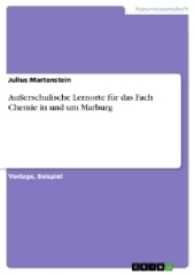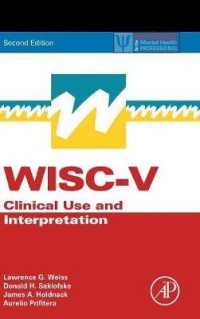基本説明
Delves into contextually variable culturally defined expectations, that include multiple linguistic forms - both oral and writen - highlighting the complexity of writing(s), while engaging the reader in lively academic debates about language and society.
Full Description
This book offers a much needed alternative to the more traditional texts used to teach writing instruction. Grounded in history, the book clarifies changing theoretical and practical approaches to teaching writing, critically assessing each approach in relation to the social and political movements of the day, both within and beyond the university. The author takes us inside the real world of writing instruction; not only from the viewpoint of instructor, but as seen through the eyes of students struggling to make sense of the expectations of writing class. Mitchell emphasizes that "writing" entails far more than putting words to paper, and delves into contextually variable culturally defined expectations, that include multiple linguistic forms - both oral and written - highlighting the complexity of writing(s), while engaging the reader in lively academic debates about language and society.
Contents
Introduction; Chapter 1 The Traditional Approach; Chapter 2 The Cognitive Approach; Chapter 3 The Expressive Approach; Chapter 4 The Social/Cultural Approach; Chapter 5 The Social Construction of a Writing Instructor: Sarah's Ideology; Chapter 6 From Ideology to Practice: Sarah Teaching; Chapter 7 Proficient Student Writers in Context: Alan's and Zola's Stories; Chapter 8 Less-Proficient Student Writers in Context: Tan's and Araya's Stories; Chapter 9 The Dialogical Construction of Success: Alan in Conference; Chapter 10 Student and Instructor Spar for Control: Zola in Conference; Chapter 11 Oral Competence Supersedes Written Competence: Tan in Conference; Chapter 12 Discourse Without Dialogue: Araya in Conference; Chapter 13 The Writing Course Overall and After All; Chapter 14 Speaking Bitterness, Offering Hope: Concluding Comments;








